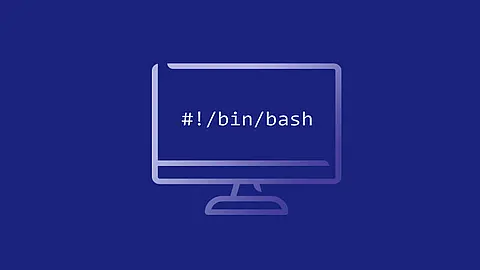Bash: Guide to Bash Arrays

The Bash array variables come in two flavors, the one-dimensional indexed arrays, and the associative arrays. The indexed arrays are sometimes called lists and the associative arrays are sometimes called dictionaries or hash tables. The support for Bash Arrays simplifies heavily how you can write your shell scripts to support more complex logic or to safely preserve field separation.
This guide covers the standard bash array operations and how to declare (set), append, iterate over (loop), check (test), access (get), and delete (unset) a value in an indexed bash array.
How to declare a Bash Array?
Arrays in Bash are one-dimensional array variables. The declare shell builtin is used to declare array variables and give them attributes using the -a and -A options.
Note that there is no upper limit (maximum) on the size (length) of a Bash array and the values in an Indexed Array and an Associative Array can be any strings or numbers, with the null string being a valid value.
Remember that the null string is a zero-length string, which is an empty string. This is not to be confused with the bash null command which has a completely different meaning and purpose.
You can create an Indexed Array on the fly in Bash using compound assignment or by using the builtin command declare. The += operator allows you to append a value to an indexed Bash array.
#!/bin/bash
array=(one two three)
echo ${array[*]}
# output:
one two three
array[5]='five'
echo ${array[*]}
# output:
one two three five
aray[4]='four'
echo ${array[*]}
# output:
one two three four five
array+=('six')
echo ${array[*]}
# output:
one two three four five six
array=("one" "two" "three" "four items")
echo ${array[*]}
# output:
one two three four items
#!/bin/bash
array=(1 2 3)
echo ${array[*]}
# output:
1 2 3
array+=('a')
array+=('b')
array+=('c')
array+=('d' 'e')
echo ${array[*]}
# output:
1 2 3 a b c d e
When to use double quotes with Bash Arrays?
A great benefit of using Bash Arrays is to preserve field separation. Though, to keep that behavior, you must use double quotes as necessary. In absence of quoting, Bash will split the input into a list of words based on the $IFS value which by default contain spaces and tabs.
Default IFS variable
The default value for $IFS is<space><tab><newline>. You can print it with the following command: cat -etv <<<"$IFS"
#!/bin/bash
myArray=("1st item" "2nd item" "3rd item" "4th item")
printf 'Word -> %s\n' ${myArray[@]} # word splitting based on first char in $IFS , because array is not quoted
# output:
Word -> 1st
Word -> item
Word -> 2nd
Word -> item
Word -> 3rd
Word -> item
Word -> 4th
Word -> item
myArray=("1st item" "2nd item" "3rd item" "4th item")
printf 'Word -> %s\n' "${myArray[*]}" # word splitting based on first char in $IFS, use the full array as one word
# output:
Word -> 1st item 2nd item 3rd item 4th item
myArray=("1st item" "2nd item" "3rd item" "4th item")
printf 'Word -> %s\n' "${myArray[@]}" # use arrays entries, because array variable use quotation marks
# output:
Word -> 1st item
Word -> 2nd item
Word -> 3rd item
Word -> 4th item
When performing WordSplitting on an unquoted expansion, IFS is used to split the value of the expansion into multiple words.
When performing the "$*" or "${array[*]}" expansion (* not @, and quoted), the first character of IFS
is placed between the elements in order to construct the final output string.
Likewise, when doing "${!prefix*}", the first character of IFS
is placed between the variable names to make the output string.
example with another IFS variable:
#!/bin/bash
# set IFS to '+'
IFS='+'
myArray=("1st item" "2nd item" "3rd item" "4th item")
printf 'Word -> %s\n' ${myArray[@]} # output is array items because first char in $IFS not contain space
# output:
Word -> 1st item
Word -> 2nd item
Word -> 3rd item
Word -> 4th item
myArray=("1st item" "2nd item" "3rd item" "4th item")
printf 'Word -> %s\n' "${myArray[*]}" # use the full array as one word with first char in $IFS as delimeter
# output:
Word -> 1st item+2nd item+3rd item+4th item
myArray=("1st item" "2nd item" "3rd item" "4th item")
printf 'Word -> %s\n' "${myArray[@]}" # use arrays entries, because array variable is quoted
# output:
Word -> 1st item
Word -> 2nd item
Word -> 3rd item
Word -> 4th item
# set IFS to 'e' char
IFS='e'
myArray=("1st item" "2nd item" "3rd item" "4th item")
printf 'Word -> %s\n' ${myArray[@]} # output is array items with 'e' char as delimeter
# output:
Word -> 1st it
Word -> m
Word -> 2nd it
Word -> m
Word -> 3rd it
Word -> m
Word -> 4th it
Word -> m
# set IFS to default value
unset IFS
"${myArray[@]}"
Array Operations
How to iterate over a Bash Array? (loop)
As discussed above, you can access all the values of a Bash array using the * (asterisk) notation. Though, to iterate through all the array values you should use the @ (at) notation instead.
The difference between the two will arise when you try to loop over such an array using quotes:
The * notation will return all the elements of the array as a single word result while the @ notation will return a value for each element of the Bash array as a separate word. This becomes clear when performing a for loopicon mdi-link-variant on such a variable.
The difference is subtle; $* creates one argument, while $@ will expand into separate arguments
example:
#!/bin/bash
array=(a b c d e)
# Using '*'
echo ${array[*]}
# output:
a b c d e
# Using '@'
echo ${array[@]}
# output:
a b c d e
# For Loop Exampe with '*', will echo only once all the values
for value in "${array[*]}"; do echo "$value"; done
# output:
a b c d e
# For Loop Example with '@', will echo individually each values
for value in "${array[@]}"; do echo "$value"; done
# output:
a
b
c
d
e
How to iterate over a Bash Array? (loop) using index
#!/bin/bash
array=(a b c d e)
for index in "${!array[@]}"; do
echo "${array[$index]}"
done
#output:
a
b
c
d
e
How to get a subset of an Array?
The shell parameter expansions works on arrays which means that you can use the substring Expansion: ${string:<start>:<count>} notation to get a subset of an array in bash. Example: ${myArray[@]:2:3}.
The notation can be use with optional <start> and <count> parameters. The ${myArray[@]} notation is equivalent to ${myArray[@]:0}.
| Syntax | Desctiption |
|---|---|
| ${myArray[@]: |
Get the subset of entries from |
| ${myArray[@]: |
Get the subset of |
| ${myArray[@]:: |
Get the subset of |
#!/bin/bash
array=(1 2 3 4 5)
echo ${array[@]:2:3}
# output:
3 4 5
echo ${array[@]:1}
# output:
2 3 4 5
echo ${array[@]::2}
# output:
1 2
new_array=( ${array[@]::2} ) # create new array from old array
echo ${new_array[@]::2}
# output:
1 2
How to check if a Bash Array is empty?
You can check if an array is empty by checking the length (or size) of the array with the ${#array[@]} syntax and use a bash if statementicon as necessary.
#!/bin/bash
array=();
if ! (( ${#array[@]} > 0 )); then
echo "array is empty";
fi
# output:
array is empty
if [[ ${#array[@]} -eq 0 ]]; then
echo "array is empty";
fi
# output:
array is empty
array=("" 1);
if [[ ${#array[@]} -ne 0 ]]; then
echo "array is not empty";
fi
# output:
array is not empty
How to check if a Bash Array contains a value
There is no in array operator in bash to check if an array contains a value. Instead, to check if a bash array contains a value you will need to test the values in the array by using a bash conditional expression
with the binary operator =~. The string to the right of the operator is considered a POSIX extended regular expression
and matched accordingly.
#!/bin/bash
# False positive match:
# Return True even for partial match
array=(a1 b1 c1 d1 ee)
[[ ${array[*]} =~ 'a' ]] && echo 'yes' || echo 'no'
# output:
yes
[[ ${array[*]} =~ 'a1' ]] && echo 'yes' || echo 'no'
# output:
yes
[[ ${array[*]} =~ 'e' ]] && echo 'yes' || echo 'no'
# output:
yes
[[ ${array[*]} =~ 'ee' ]] && echo 'yes' || echo 'no'
# output:
yes
How to check if a Bash Array contains a value - exact match
(^|[[:space:]])"VALUE"($|[[:space:]])
#!/bin/bash
# Exact match
array=(aa1 bc1 ac1 ed1 aee)
if [[ ${array[*]} =~ (^|[[:space:]])"a"($|[[:space:]]) ]]; then
echo "Yes";
else
echo "No";
fi
# output:
No
if [[ ${array[*]} =~ (^|[[:space:]])"ac1"($|[[:space:]]) ]]; then
echo "Yes";
else
echo "No";
fi
# output:
Yes
find="ac1"
if [[ ${array[*]} =~ (^|[[:space:]])"$find"($|[[:space:]]) ]]; then
echo "Yes";
else
echo "No";
fi
# output:
Yes
How Delete item from bash array
#!/bin/bash
array=("a" "b" "c" "a" "aa")
del="a"
for index in "${!array[@]}"; do
if [[ ${array[$index]} == $del ]]; then
unset 'array[index]'
fi
done
echo ${array[@]}
# output:
b c aa
How to delete elements of one array from another array in bash
array=("a" "b" "c" "a" "aa")
del_a=("a" "g" "b")
for index in "${!array[@]}"; do
for del in "${del_a[@]}"; do
if [[ ${array[$index]} == $del ]]; then
unset 'array[index]'
fi
done
done
echo ${array[@]}
#output:
c aa
Merging arrays in bash
#!/bin/bash
array_one=("a" "b" "c" "d")
array_two=("1" "2" "3" "4")
array=("${array_one[@]}" "${array_two[@]}")
echo ${array[@]}
echo ${#array[@]}
# output:
a b c d 1 2 3 4
8
array_one=("a" "b" "c" "d")
array_two=("1" "2" "3" "4")
# Add new element at the end of the array
array_one=("${array_one[@]}" "another_value")
echo ${array_one[@]}
# output:
a b c d another_value
# Add array elements from another array
array_one=("${array_one[@]}" "${array_two[@]}")
echo ${array_one[@]}
# output
a b c d another_value 1 2 3 4
How to store each line of a file into an indexed array?
The easiest and safest way to read a file into a bash array is to use the mapfile builtin which read lines from the standard input. When no array variable name is provided to the mapfile command, the input will be stored into the $MAPFILE variable. Note that the mapfile command will split by default on newlines character but will preserve it in the array values, you can remove the trailing delimiter using the -t option and change the delimiter using the -d option.
~]$ mapfile MYFILE < example.txt
~]$ printf '%s' "${MYFILE[@]}"
line 1
line 2
line 3
~]$ mapfile < example.txt # Use default MAPFILE array
~]$ printf '%s' "${MAPFILE[@]}"
line 1
line 2
line 3
Bash split string into array
Method 1: Bash split string into array using parenthesis
#!/bin/bash
myvar="string1 string2 string3"
# Redefine myvar to myarray using parenthesis
myarray=($myvar)
echo "Number of elements in the array: ${#myarray[@]}"
# output
Number of elements in the array: 3
Method 2: Bash split string into array using read
#!/bin/bash
myvar="string1 string2 string3"
# Storing as array into myarray
read -a myarray <<< $myvar
echo "Number of elements in the array: ${#myarray[@]}"
# output
Number of elements in the array: 3
Bash split string into array using delimiter
We can combine read with IFS (Internal Field Separator) to define a delimiter.
Assuming your variable contains strings separated by comma character instead of white space as we used in above examples.
We can provide the delimiter value using IFS and create array from string with spaces
#!/bin/bash
myvar="string1,string2,string3"
# Here comma is our delimiter value
IFS="," read -a myarray <<< $myvar
echo "Number of elements in the array: ${#myarray[@]}"
# output
Number of elements in the array: 3
Summary
| Syntax | Desctiption |
|---|---|
| arr=() | Create an empty array |
| arr=(1 2 3) | Initialize array |
| ${arr[2]} | Retrieve third element |
| ${arr[@]} | Retrieve all elements |
| ${!arr[@]} | Retrieve array indices |
| ${#arr[@]} | Calculate array size |
| arr[0]=3 | Overwrite 1st element |
| arr+=(4) | Append value(s) |
| str=$(ls) | Save ls output as a string |
| arr=( $(ls) ) | Save ls output as an array of files |
| ${arr[@]:s:n} | Retrieve n elements starting at index s |
















